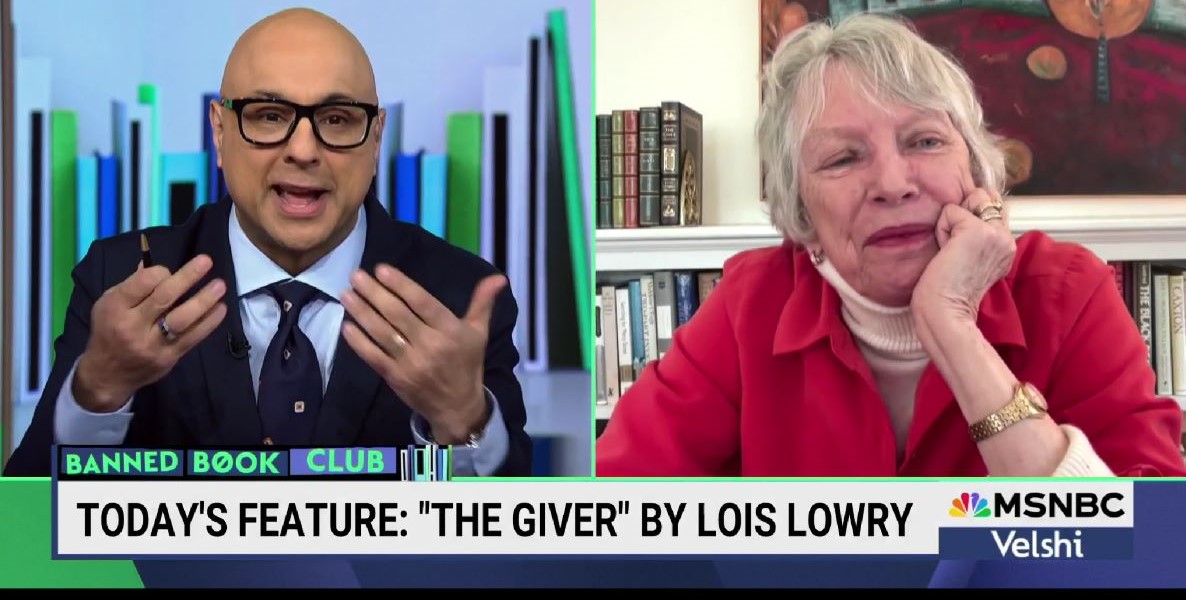The Newberry Award-winning classic The Giver depicts a world where all the memories of society’s past reside with a single individual. There is no freedom nor choice — your place and purpose in society are assigned, and you take pills to suppress feelings. Sameness is the most important thing. Those who do not conform are euthanized. The reader is introduced to a civilization that appears utopian but is, in fact, very dystopian. Ali Velshi acknowledges Lois Lowry’s novel as a rite of passage for middle school readers, and also that it’s consistently at the top of banned book lists nationwide.
The Giver, which has been translated into more than 30 languages, touches on euthanasia, suicide, infanticide and some sexual suggestion, but no violence or sex is depicted in the novel. The 12-year-old protagonist must grapple with the fact that these dark aspects of humanity exist, and the story’s themes are memory, freedom of choice, society and governmental control, and individualism. None of these realities are too heavy for adolescents to begin to understand; they are part of acknowledging one’s own humanity.
Lowry talks with Velshi about the enduring — if not increasing — relevance of The Giver. She describes the discrimination-free, racism-free, warless society that has been made without elaborating on its origins. However, Lowry explains, “In making that choice, the community, the population, the government had rescinded all the richness that diversity gives to our lives. Everything that they have done has been a choice that has been a sacrifice, and a terrible compromise. And of course it’s the young boy who comes to realize that.”
Listen to Velshi’s interview with Lois Lowry
Watch Velshi and Lowry talk about The Giver:
Velshi on banned books on MSNBC:
![]() MORE ON BANNED BOOKS FROM THE CITIZEN
MORE ON BANNED BOOKS FROM THE CITIZEN




